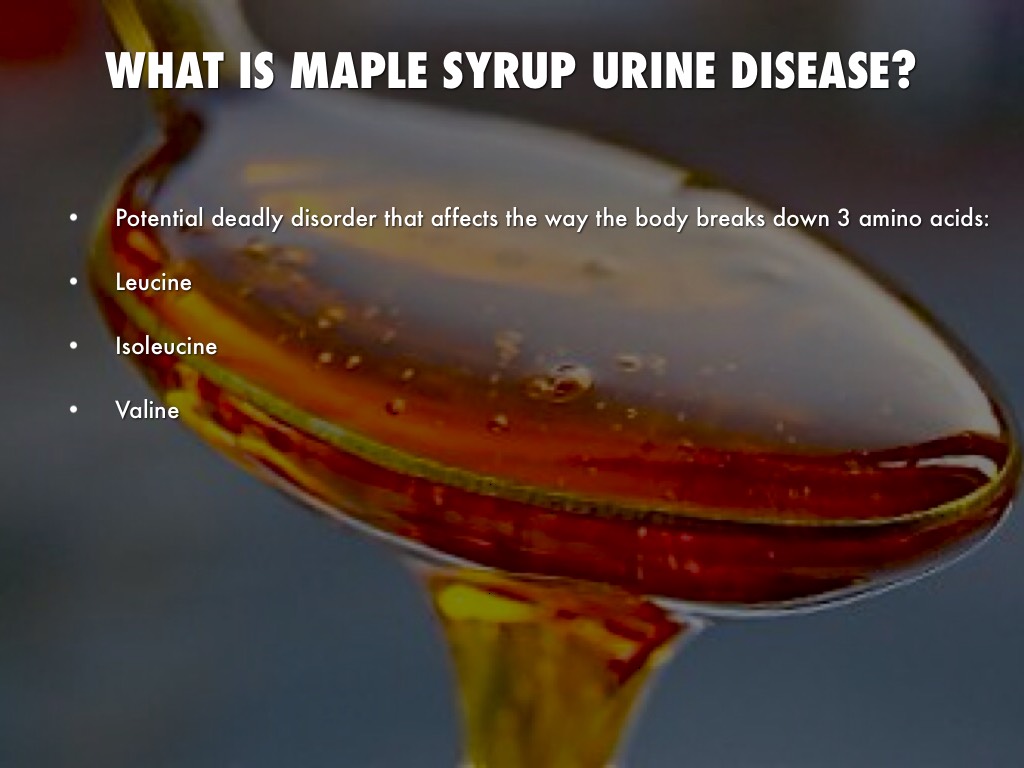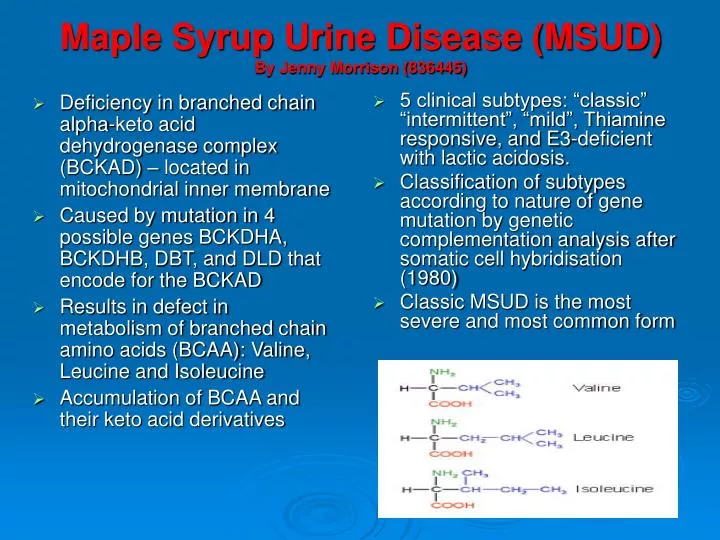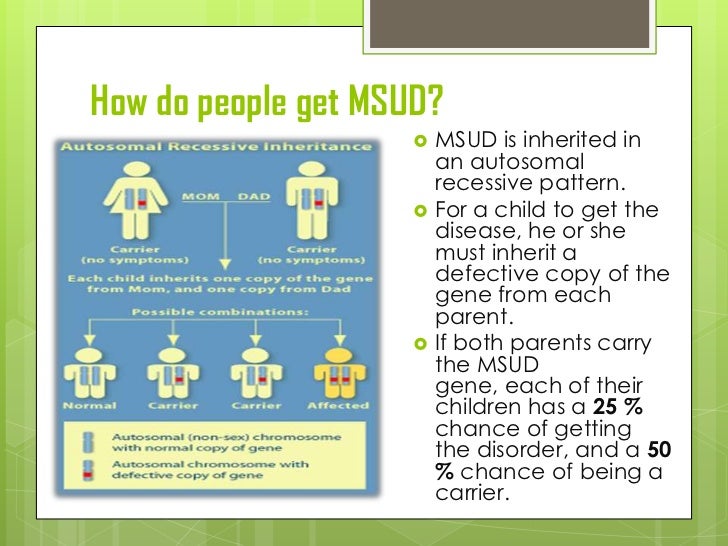
Like it’s classic form, intermediate MSUD initially produces nonspecific symptoms including feeding problems, lethargy and poor growth, which may worsen to include seizures, brain damage, coma and life-threatening complications. Most children with intermediate MSUD are diagnosed between 5 months and 7 years old.

Intermediate MSUD differs from the classic form in that these individuals typically have a higher level of residual enzyme activity and a later onset of symptoms. Loss of bone mass, increased fractures and pancreatic inflammation.Behavioral issues such as attention deficit/hyperactivity disorder (ADHD), depression, anxiety and impulsiveness.Intellectual disabilities or limitations.Within a few days and as the disease quickly progresses, infants with MSUD will display abnormal or spastic movements, hypertonia, neurological symptoms, and a distinctive odor of maple syrup in their urine, sweat and/or earwax.Ĭhildren with classic MSUD may also have: Infants with this form of MSUD generally show vague symptoms within a few days of birth, such as poor feeding, increased irritability and lethargy. The signs, symptoms and severity of maple syrup urine disease varies greatly among affected patients and depends on the type of MSUD and amount of residual enzyme activity.Ĭlassic MSUD is both the most severe and most common form of the disease, characterized by little or no enzyme activity. The risk of MSUD occurrence is the same for males and females. When two carrier parents have a child together, they have a 25% chance of having a child with the disorder for each pregnancy. A carrier for MSUD is healthy but carries a mutation in one of the two copies of the gene. Each individual has two copies of each gene. MSUD is inherited as an autosomal recessive pattern, meaning that both parents must carry the mutated gene to have a child with MSUD. When the amino acids and their toxic byproducts accumulate, serious health issues related to MSUD can occur. Mutations to the three genes result in decreased or no activity of the enzymes. These amino acids are present in protein-rich foods such as milk, meat, and eggs. These genes provide instruction for the human body to make enzymes (BCKDH complex enzymes) which are essential for breaking down amino acids including leucine, isoleucine, and valine. Maple syrup urine disease is caused by mutations in one of three genes – BCKDHA, BCKDHB or DBT. MSUD is believed to affect 1 in 380 people in the Old Order Mennonite population and 1 in 26,000 in the Ashkenazi Jewish population.

MSUD is more common in the Mennonite population in comparison to the general population. MSUD is believed to affect 1 in 185,000 births worldwide. Babies who receive abnormal results from early metabolic screening tests may be referred to the Newborn Metabolic Screening Program at Children’s Hospital of Philadelphia.

A heel-prick is used to obtain a sample of the baby’s blood and tested for abnormally high levels of amino acids. Pennsylvania, New Jersey and Delaware all require newborn screening for maple syrup urine disease.

In most cases, MSUD is diagnosed at birth as part of routine newborn screening tests, which are required in many states. However, even with treatment, some children with this disease can suffer severe disability and paralysis. In most cases, MSUD can be successfully managed with a specialized diet that breaks down the three specific amino acids – leucine, isoleucine and valine – preventing them and their toxic by-products from accumulating abnormally in the blood. Therefore, early detection and treatment essential. If not diagnosed and treated soon after birth, maple syrup urine disease (MSUD) can be life threatening – as early as the first two weeks of life. Maple syrup urine disease is a rare inherited disorder caused by the body’s inability to properly process amino acids, leading to a characteristic odor of maple syrup in the baby's urine.


 0 kommentar(er)
0 kommentar(er)
